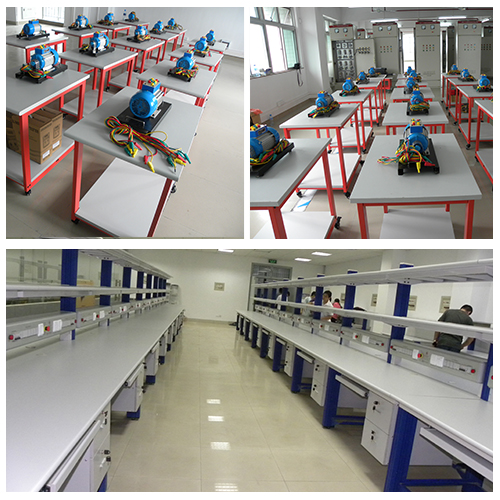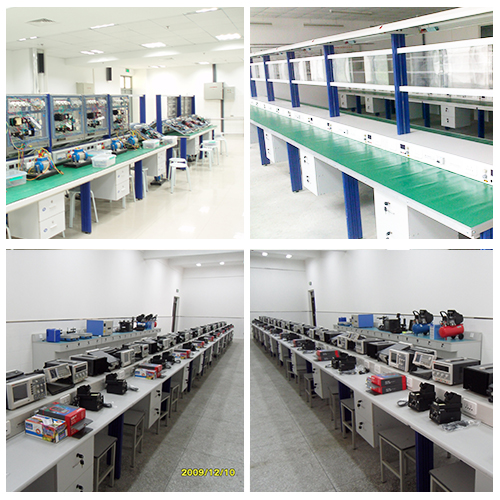MREA01 Basic Electricity Training System Electrical Training Equipment Technical Training Equipment
Description:
This Trainer is an ideal teaching aid for all types of electronic circuits.
Located all around the 2230 Tie-Point removable bread board is a variety of functional input and output circuits, which can be used to stimulate or measure electrical signals from the circuit under test or development.
The removable bread board area is not connected to these peripheral circuits and is meant to be connected by the user using standrad solid AWG #22-30 wire.
These circuit functions allow for the bread boarding and testing of circuits without the need for many expensive individual pieces of equipment.
Technical Specifications:
Completely Self-Contained Unit
Built-in regulated D.C. supplies:
1A Variable
+ 5V @ 1.0A
- 5V @ 250 mA
18-0-18V & 0-9V 1A AC Constant Supply (Optional)
Full short circuit protection and indicators.
Function Generator:

1Hz to 100 KHz continuously variable over 5-decade ranges.
Sine wave: variable 0 to ±4 Vp-p
Triangle wave: ±4Vp-p
Square wave: ±5Vp-p
3 state logic probe
Two single shot pulse generators, 80 μs
8 Bit LED display
3.5 Digit Digital Voltmeter: 4 ranges: 199.9mV, 1.999V, 19.99V and 199.9V fsd.
LCD Display
Input impedance: 4MΩ.
Analog Current Meter: 0 to 1mA
2.5-inch 8 Ohm, 1W Loud Speaker
Two flip-flow gates-with "mimic" diagram
1K & 100K Potentiometer (Optional)
Input/ Output connector, BNC & Banana
Two logic switches +5V/0V/-5V with current limit
Eight data switches +5V/0V

Two 25-Pin D-Type connectors for computer interface
Removable breadboard with 2230 inter connected tie-points, accepts 0.3-0.8mm solid wire
Applications:
1. Ohm's law and Kirchhoff's laws
2. Controlling current and voltage
3. Serial and parallel resistor circuits
4. Power and DC circuits
5. Algebraic fractions
6. Digital switching units
7. Binary coding and computer arithmetic
8. Logic circuit tracing using Boolean Algebra
9. Pulse processing circuits
10. Network theorems
11. Applications of trigonometric functions
12. Diode networks
13. Analyzing transistor circuitry
14. Audio amplifier circuits
15. Digital systems and trouble shooting
16. Time base generators
17. Magnetic circuits
18. Digital interfacing circuits
19. Computer interfacing circuits

